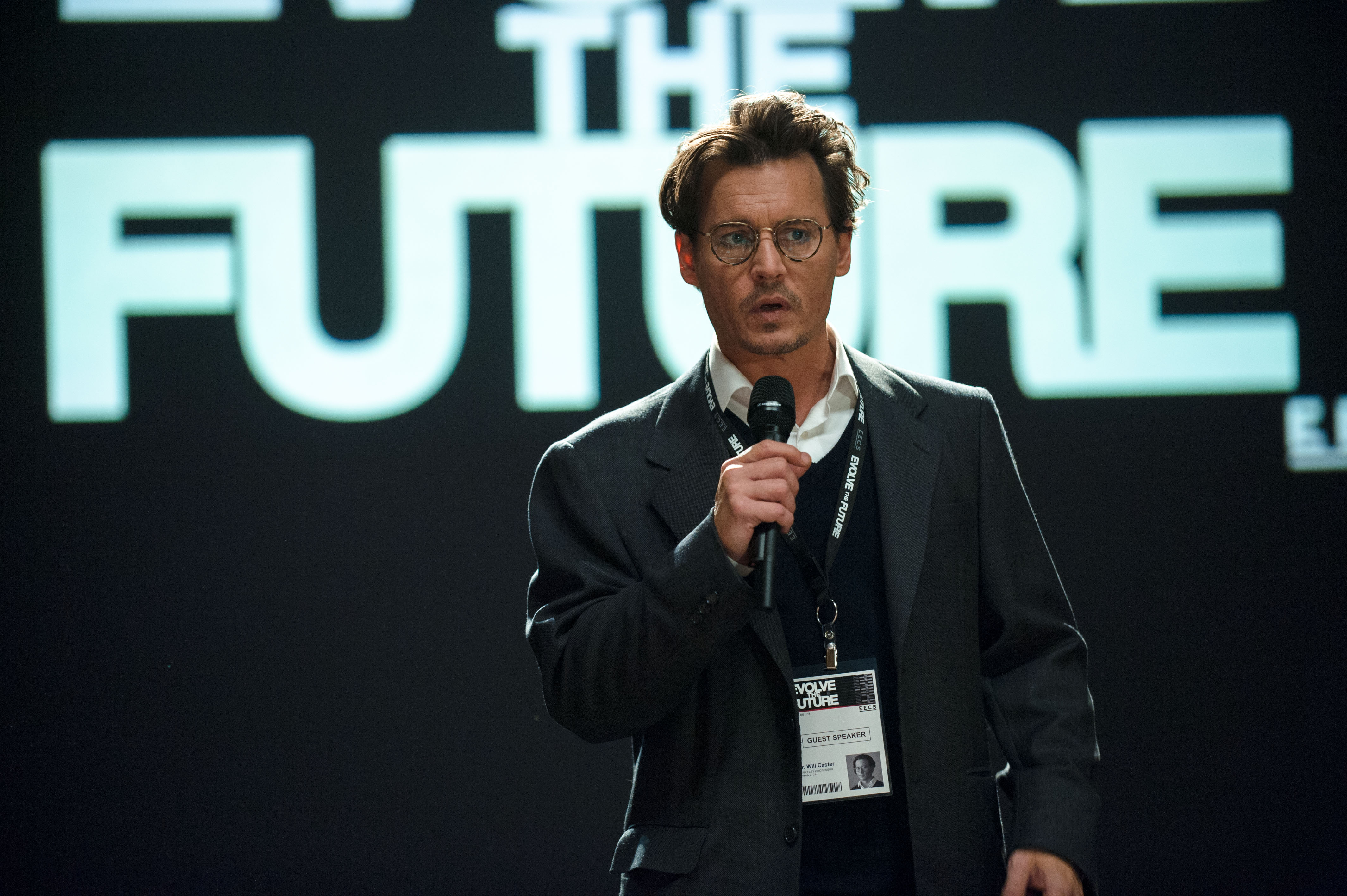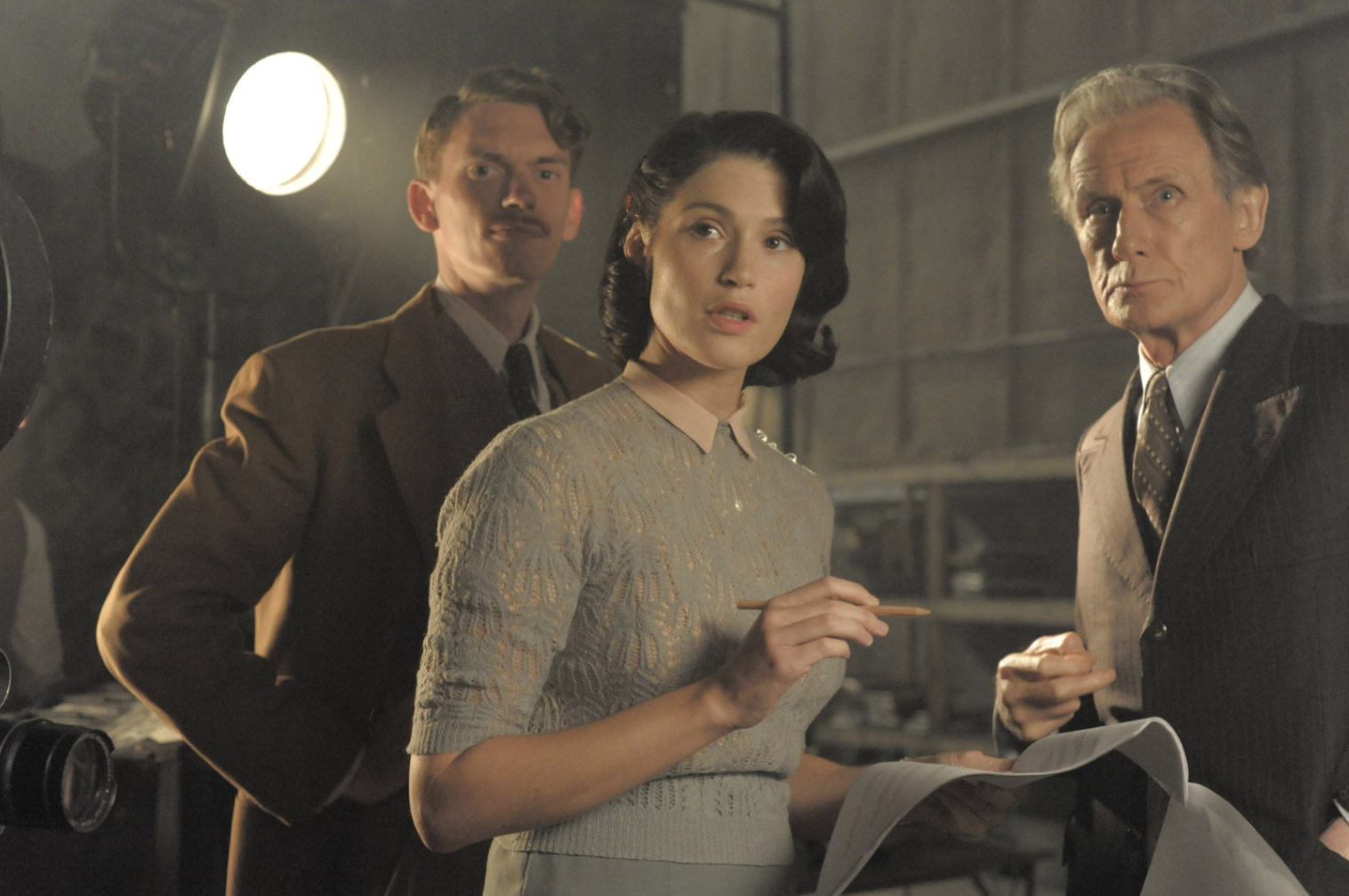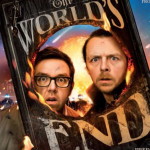

Oscar winning cinematographer Willy Pfister makes his directorial debut with this week’s highly anticipated new release starring Johnny Depp. A fascinating but ultimately overly ambitious piece of filmmaking, Transcendence attempts in both its subject matter and visual artistry to raise itself to the level of the best of director Christopher Nolan’s work.
Many are called, few are chosen.
Still, isn’t it better as a population of film lovers, rather then having to succumb to lowered expectations at the multiplex, to imagine artists at least trying to transcend by taking big risks and failing?
Metaphorically speaking, imagine getting the newest Mac Pro tricked out with all the fanciest software, and reveling in its superiority until the starts crashing starts occurring every five minutes.
Transcendence begins well enough, showing a great deal of promise. The plot is themed around the dangers of technological expansion and the philosophical and moral ramifications of the advent of sentient machines. Computer genius Will Caster (Johnny Depp) and his wife Evelyn (Rebecca Hall) have been building a supercomputer that can advance its own thinking to become self aware. This sends a radical anti-technology organization into terrorist mode. They kill many of the most advanced scientists working on related projects, and poison Will Caster, leaving him only weeks to live. As Will’s health quickly deteriorates, Evelyn talks fellow scientist Max Waters (Paul Bettany) into an experimental upload of all Will’s traits, brainwaves, and whatever else they believe makes up his essential being into their computer.
Evelyn’s growing panic at his loss and her subsequent grief blinds her to the potential or eventual hazards of placing Will in this new virtual existence. The poignant, bittersweet tragedy that is the morphing of their relationship should have been the beating heart of this film. Transcendence functions best as a cautionary tale about the danger of allowing mourning and loss to go unexamined & unhealed, than about allowing technology to go on unchecked. In the stomach-turning moments where they both grasp for connection with each other, the film seems to wade into the territory of emotional horror. For better or worse, Transcendence does get the brain twisting torture of grief, and what it can lead to, exactly right.
Though certainly not the first nor the best film to do so, it is also good in the way it asks questions; What is a soul? Where does intellect end and the soul begin?…. Can only the divine give life to that which is the undefinable self or can it be created through intellectual evolution? How it attempts to answer the questions becomes the issue.
As Will Caster, Depp shows he can still perform every bit as well without the trappings of his more flamboyant roles, and works his best Everyman acting magic to keep you in thrall. However, If the aformentioned philosophical ramblings leave you cold, it’s back to Depp’s more populist Pirates of the Caribbean for you! Rebecca Hall’s stellar and heartbreaking performance as Evelyn surprises only those who have not long awaited her rise to the Hollywood A-list. Paul Bettany, as their beleaguered best friend, once again shows casting agents he should be hired more often, whether as a lead, a supporting actor, or in an ensemble. These three actors do impressive work both together and individually onscreen.
It is in what transpires after Will shows himself to have made the transition into a technological existence where the story arc goes from fascinating and creative to disappointing.
The problem with this film is two-fold. The first is it asks of its audience to actively engage their intellect, and then creates holes in logic too big for them to ignore. To avoid spoilers, i’ll just say these holes increase in size as the film reaches its conclusion. A film that intends to be this intellectually provocative probably wants to stir up conversation and debate about its heady subjects, not its inconsistencies. The second is the film introduces too many elements to its story, making it feel derivative, which is saddest to know, since it had the potential to be so unique and unusual. Called to mind are a host of classics in the sci-fi and thriller genres, including Colossus: The Forbin Project, Invasion of the Body Snatchers, Brainstorm, Coma, and Donovan’s Brain. Any one of these films is a more rewarding viewing experience.
All the big ideas put together into the film by Oscar darling Pfister, who won the award for Inception and was nominated for The Dark Knight, The Prestige, and Batman Begins, make it worthwhile viewing for those who will want to look back when he finds his stride as director, which he will. There is enough performing prowess, enough to appreciate visually and chew on philosophically for everyone from tech nerds to students of world religion, that I cannot warn those curious away. It is the sort of movie where you will know the moment it defeats itself, but will still appreciate and respect the effort in the trying.
2 1/2 out of 5 stars.



